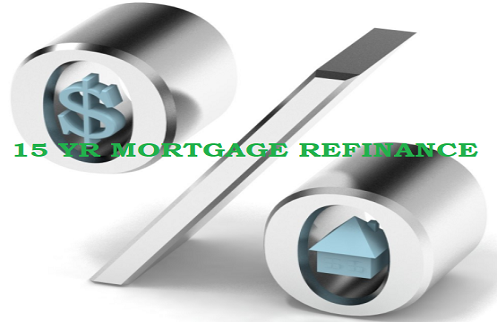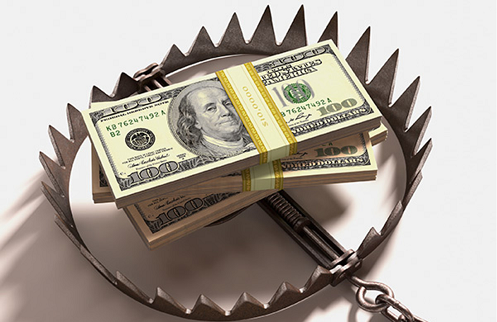
Taking a Closer Look at a 15-Year Mortgage Refinance
(updated 08/22/2020)
Mortgages refinance with a Bank or Mortgage Company can be a great tool to saving yourself some money. We get these offers in the mail, by phone, by email, on social media, you name it. But, is a lower refinance interest rate with the mortgage company always worth the deal? This is a very valid question for business owners to consider from a financial management standpoint.
Example
For example, if you currently have a 5% mortgage with 25 years left to go on paying off that mortgage, is it worth it to do a refinance for a 3.5%, 15-Year mortgage? Why? For me, the answer is Nope; especially in these uncertain economic times. Here’s why:
• Let’s assume I have a mortgage for $150,000 with 25 years remaining @ 5% and as such my monthly mortgage payments are approximately $877 per month.
• The mortgage company is offering a 3.5%, 15-Year mortgage refinance; however, there are usually fees one way or another with doing a refinance and these fees can easily be 5% of the mortgage balance so the amount refinanced is now $157,500 (150,000 x 1.05 = 157,500). They usually rush through this part of the “details” if you want to call it details.
• My new monthly payments for a $157,500, 3.5%, 15-Year mortgage are now approximately $1,126. In other words, paying $1,126 for 15 years fully closes the deal, the title is yours, and you don’t owe a penny anymore except for taxes and insurance. $1,126 x 180 months = $202,680 total payments; not a bad financial management decision making analysis.
Making the Decision
My choice would be to “refinance” without the mortgage company involved thereby cancelling all closing fees and any other related mortgage refinance fees. My mortgage balance remains at $150,000, at 5% (my rate technically still remains the same), for 15 years which works out to my new monthly payments of approximately $1,187 per month. $1,187 x 180 months = $213,660 total payments.
The difference in the two total payments in the amounts of $202,680 (with the mortgage company) vs $213,660 (without the mortgage company) = $10,980. At first glance, it looks like this is a bad deal all around and I actually will end up paying more over the course of the 15 year period.
Flexibility in the Financial Management Process
But here is the deal, I have lots of flexibility doing my own “refinance” vs refinancing with the mortgage company. I can drop back and revert to my lower monthly payments during tough economic times or times of emergency; Or, I can step up the pace and increase my monthly payments when my finances improve. Remember, my only fixed obligation is set at my original mortgage agreement for $877 per month. So, I can drop way back from $1,187 to $877 payments per month without penalties, forfeiture of my interest rate, threat of a foreclosure, and whatever else. This is the luxury I have for not refinancing with the mortgage company due to sound financial management analysis.
So, is it worth taking a flexible “refinance” for $1,187 vs a locked-in, fixed contract official mortgage refinance for $1,126, in these uncertain times? Absolutely!
Opportunity Cost for Not Considering Sound Financial Management
Had I chosen the locked-in, fixed contract mortgage refinance (15 yrs) for $1,126, I would be stuck with a minimum monthly payment obligation of $1,126; minimum. I can pay more without penalty; but I can’t pay less without penalty; forbearances still have to be paid even if granted. I’m stuck; I have no wiggle room; in times of an economic crunch this can easily lead to undue stress and possibly a foreclosure.
More Insights into the Decision-Making Process
What if I just happen to be Mr. Fortunate, and I can do a “self-refinance” for 12 years; now my payments work out to be $1,387; about $260 more than the official mortgage company refinance for 3.5% ($1,126 – remember?). But, here is the deal, at $260 more per month I get done in 12 years as opposed to 15 years. Here is another deal, over 12 years I’d end up paying $199,728; as opposed to over 15 years paying back $202,680. Interesting. And as before, if I need the safety net and need to drop back down to making $877 monthly payments, I can without worries.
Conclusion
Here is the take away: sometimes it got to be really really worth it to sign that official mortgage refinance. Maybe a 2% 15 year mortgage refinance would get me to take a closer look and perhaps change my mind. But, it’s got to be worth it; considering the economic cost and not just the financial cost.
Until next time, follow us on linkedin for a variety of tips and articles on the topic of taxes, accounting, and related matters.
#SanzVirtualEnterprise #Forward #SmallBusinessAccounting #SmallBusinessTaxes
* Note: “Refinancing” without the mortgage company is consistently referred to in quotations because it is not an official actual refinance; it is more a restructuring of the terms/months vs the interest rate.



